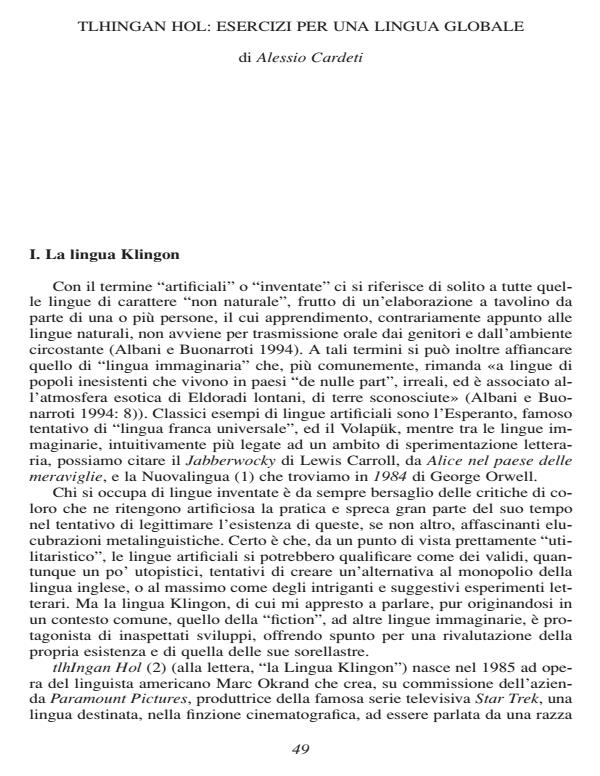TlhIngan Hol: esercizi per una lingua globale
Journal title SOCIOLOGIA DELLA COMUNICAZIONE
Author/s Alessio Cardeti
Publishing Year 2002 Issue 2001/31
Language Italian Pages 15 P. File size 71 KB
DOI
DOI is like a bar code for intellectual property: to have more infomation
click here
Below, you can see the article first page
If you want to buy this article in PDF format, you can do it, following the instructions to buy download credits

FrancoAngeli is member of Publishers International Linking Association, Inc (PILA), a not-for-profit association which run the CrossRef service enabling links to and from online scholarly content.
"Artificial" or "invented" languages are those of a "non-natural" heritage, the result of the deliberate workings of an individual or a group thereof. To these terms we could add that of "imaginary language" which commonly refers to the languages of fictional people, living in unreal, "nowhere places", evoking images of unknown lands, "distant Eldoradoes". Classic instances of artificial languages are the Esperanto and the Volapük, famous attempts for a "universally neutral language", while, among the imaginary ones, intuitively more directly connected to literary experimentation, we can find the Jabberwocky, from Lewis Carroll’s Alice in wonderland and the Newspeak, from George Orwell’s 1984. Working on such languages has always been the source of many a criticism from those who consider such practice just an artful divertissement. Surely, from a utilitarian point of view, artificial languages could be considered valid, though a bit utopian, attempts to break the international monopoly of the English language, or, at best, as intriguing literary artifices. But the Klingon language, even though originating from a context, that of fiction, common to other imaginary languages, went through some unexpected developments which offered a starting point for a revaluation of its existence and the existence of its stepsisters.
Alessio Cardeti, TlhIngan Hol: esercizi per una lingua globale in "SOCIOLOGIA DELLA COMUNICAZIONE " 31/2001, pp , DOI: